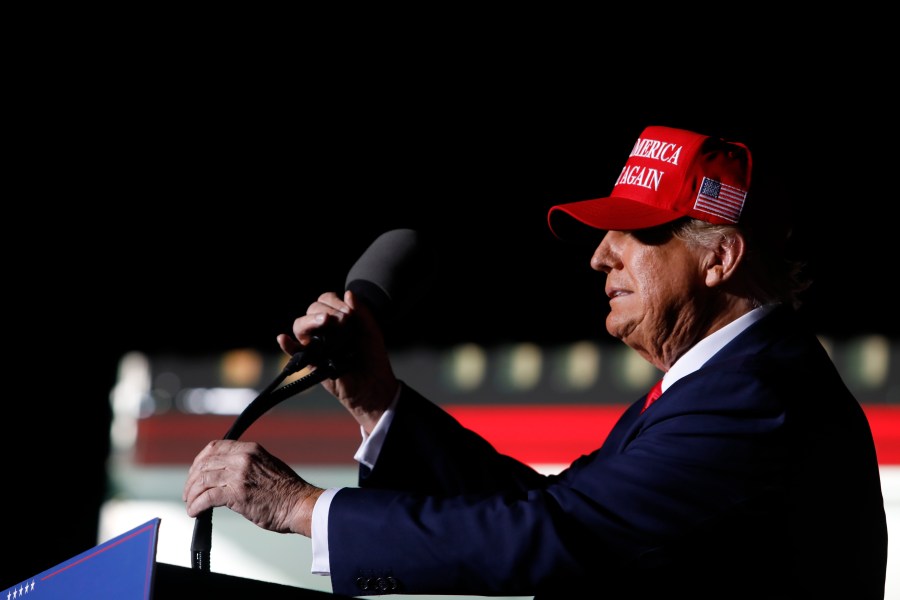Team Trump is winning the policy battle but losing the messaging war

Poor messaging has been the loser’s lament in politics for decades. No candidate or party ever wants to take responsibility for a loss, especially if that responsibility means their fundamental beliefs are out of step with the public.
President Trump and his administration have a different problem — he looks to be on the right side of public opinion, but his communications strategy is not making the most of his opportunities. Relying on random Truth Social posts, rambling speeches and alternative media figuring out his intentions is no replacement for well thought out policy statements.
And Trump does need help with his public approval.
After the perfunctory public opinion honeymoon that all presidents get, Trump fell into negative approval in mid-March, according to the RealClearPolitics average. At the time of this writing, RealClear has Trump at 45 percent approval, with disapproval at 52 percent. Even the more Trump-friendly Rassmussen poll has mostly had Trump underwater since the start of July and 1 point positive on the best days.
YouGov, which is generally more negative toward Trump, has him underwater 15 points in approval, although the unweighted data oversample Democrats. Looking at just independents, Trump is down 31 points, at 30 percent approve against 61 percent disapprove. And successfully mediating a truce between Israel and Hamas might not help that much; just 1 percent of independents cite foreign policy as their top issue.
Even where he should poll well, Trump has problems. In the YouGov poll, staying with just independents, only 31 percent are “confident” in Trump in an international crisis, against 55 percent who are “uneasy.” It seems likely that Trump’s peripatetic style is detracting from his substantive results.
Trump’s lack of discipline remains an impediment. His constant Truth Social posting gains a lot of attention, but he is constantly whipsawing from one thought to the next. The result is a stream of messaging that turns into noise for the majority of voters who are not really engaged in politics.
What Trump needs to do is to make clear statements that establish his administration’s policies, which would allow his surrogates and media allies to amplify. Trump can still indulge in his streams of consciousness, but having a strong underlying message anchors your actions and allows the public to understand what the goals are.
A perfect example of message failure is Trump’s decision to aggressively target drug cartel shipments originating from Venezuela — which is to say, sink those shipments and send the suspected criminals to the bottom of the sea. Hardly any American is going to shed a tear for drowning drug pushers, but Trump is failing to make the most of his long overdue change in policy.
In addition to acting, Trump should make the case that national security is not just about nuclear missiles and stopping terrorists from hijacking planes. The fact is, transnational drug gangs like Tren de Aragua are a real national security threat. Using sophisticated financial networks, cryptocurrency, advanced technology like submersible boats, and supported by the kleptocratic government of Venezuela, they are destroying American lives and costing communities. To treat their members like a bunch of shoplifters or graffiti taggers is ridiculous. The mere membership in Tren de Aragua should be enough to buy you a one-way ticket to Guantánamo Bay — or the bottom of the Caribbean, whichever you choose.
Beyond Venezuelan and Mexican drug gangs, other non-state actors continue to pose a threat to the prosperity of the U.S. Massive “fraud factories” in Burma and Cambodia are stealing billions from American citizens and trapping people in slave labor conditions. It’s all well and good to indict the leaders (if you can find them), but the scams will keep chugging along.
None of these scam centers could operate without the indulgence of local governments — or what passes for local government, in the case of Burma. In the case of Cambodia, the government should be presented with the stark choice: either shut down the scam centers and turn over the managers or face potential military action.
Call it the Trump Doctrine: foreign nationals who attack the security interests of the United States will not be subject to the criminal justice system, they will be subject to military action and military justice.
The 2024 election was a surprise, not that Trump won, but that the election was even competitive. Given the state of the economy and the incompetence of the Democrats, Trump should have romped to a 400 electoral vote win. Leaving votes on the table is always bad, even if you win.
The Trump administration has not learned from this unnecessarily close result, and it could cost him in the midterm elections. It’s time for Team Trump to get its act together.
Keith Naughton, a longtime Republican political consultant, is co-founder of Silent Majority Strategies, a public and regulatory affairs consulting firm, and a former Republican political campaign consultant in Pennsylvania.